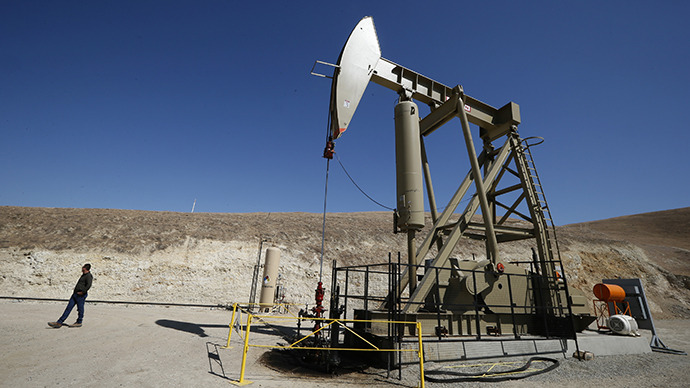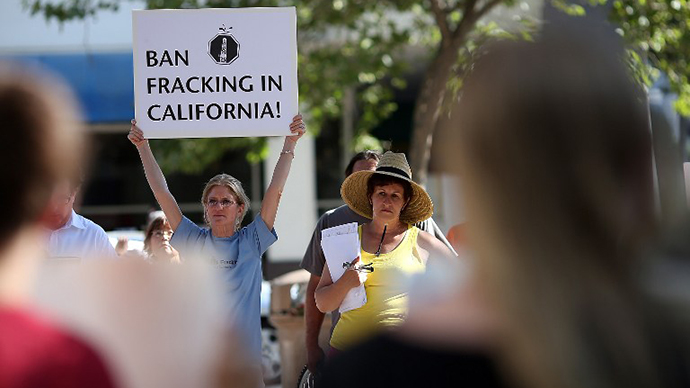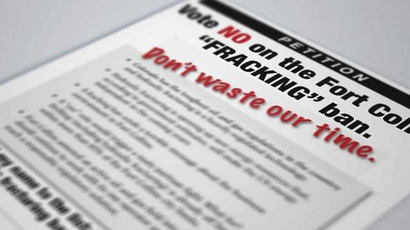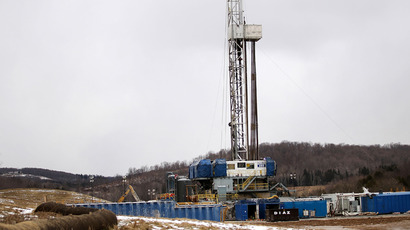Worse than fracking? California environmentalists terrified by acid jobs

As California lawmakers discuss 10 bills that would regulate fracking, some environmentalists are warning that the debate overshadows a more serious process that involves the use of hydrofluoric acid.
The state regulator is drawing up rules for hydraulic fracturing, lawmakers are consideration various regulatory bills, environmentalists are protesting drilling in the Monterey oil formation, and filmmakers are creating a movie about the debate. Many believe the concerns over fracking are well-founded, but some corporations plan to use a different method to extract oil or gas altogether.
“All this anti-fracking language misses the target and I am very concerned it is a diversion," Steve Shimek of the environmental group Monterey Coastkeeper told Reuters.
Venoco, a private oil and gas production corporation, has estimated that eight out of 10 of its Monterey wells can be completed without the use of fracking – a method which injects water, sand and chemicals into faults at high pressure to shatter rock formations and release oil or gas. Using an alternate method, chemicals such as hydrofluoric acid are pumped into the wells to melt rocks and other obstructions to extract oil. Occidental Petroleum Corp, a California-based oil and gas production company that leads the Monterey development, in 2011 announced that most of its shale was extracted using acid jobs – not fracking. This month, the company said that only one sixth of its wells are currently being fracked.

Only one of the 10 legislative fracking bills addresses acid jobs, which has some environmentalists concerned. Companies are not required to report their use of acid, which allows them to pump large quantities of this substance into the ground with no regulation.
“These are super-hazardous, poisonous chemicals and we have no idea what they are doing out there with it – how deep it is going, the volumes – nothing,” Bill Allayaud of the Environmental Working Group told Reuters. “Why shouldn’t our state agency be regulating it as we hope they’ll be regulating hydraulic fracturing?”
Earlier this month, Allayaud told Environment & Energy Publishing that regulation for acid use is desperately needed because it is unknown how much of the substance is being used and where. Damon Nagami, a senior attorney at the Natural Resources Defense Council, said techniques that replace fracking – including gravel packing, water flooding, steam flooding and acidization – remain largely excluded from the public debate.
They “aren’t being talked about as much because of the spotlight on fracking,” Nagami told E & E Publishing. “We believe they could have as much of an impact or possibly more than fracking itself because of the widespread use and potential used in the future.”
With an estimated 15 barrels of oil in the Monterey shale, California is ranked fourth in the US for oil output. Fracking regulation in the state will take up to 16 months to write, and ruled on acid jobs could take longer than that, State Oil and Gas Supervisor Tim Kustic told Reuters. But with little emphasis on acid regulation in the debate on oil and gas extraction, companies will most likely be able to continue their processes undisturbed.
“Taking hydrofluoric acid and injecting it into the ground and changing the geology down there is a big concern,” Kassie Siegel, an attorney with the Center for Biological Diversity, told Reuters. “We should not have this activity going on until we know those risks.”
Lawmakers are trying to address environmentalists’ fracking concerns, but acidization continues to remain a little-known process with unknown environmental effects.














